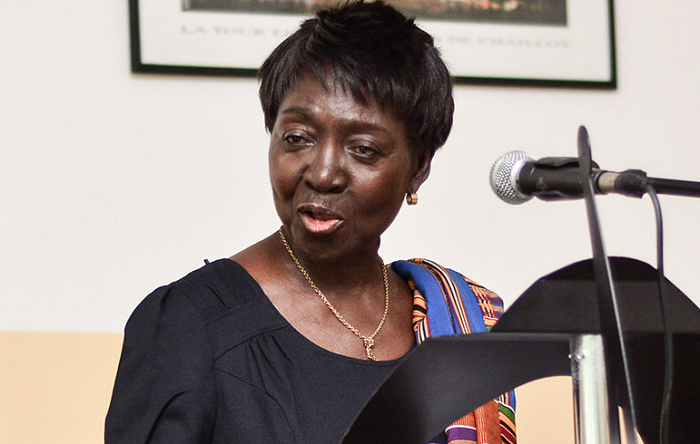
The heart and soul of a vibrant educator - In memory of Prof. Nana Araba Apt
Tyler Perry used the following tree analogy to evaluate friends, family, acquaintances, employees,co-workers, and so on.
Leaf, Branch, and Root People
He said, Some people come into your life like leaves on a tree. They are there to take what they need and as soon as it gets cold or a wind blows in your life they are gone. You can’t be angry at them, it’s just who they are.
Then, he said, some people come into your life like branches on a tree. They are stronger than leaves, but you have to be careful with them. If you go through a storm or two, it’s possible that you could lose them.
And lastly, he said, If you can find people in your life who are like the roots of a tree then you have found something special. Like the roots of a tree, they are hard to find because they are not trying to be seen. Their only job is to hold you up and help you live a strong and healthy life.
It is in the root category that I remember Prof. Nana Araba Apt more aptly.
McCarthy Hill Residents Association
And this is how we met: She took a walk to my house one weekend with the mission to seek my membership and yearly contributions in the McCarthy Hill Residents Association, for which she had co-authored a Constitution.
We sat on the veranda where she flagged her main concerns: the large amount of littering and filth degrading the environment, the lack of water up the hill considering that the Weija water body was just around the corner, and lastly the disturbing noises of the worshippers and weekend joggers in the area.
Her concerns were grounded and I dutifully joined the association and became its chairman to support her and the other stalwarts in the group. For starters, we were able to enjoin Ghana Water Company to install a booster station at the bottom of the hill to supply water up the hill. Not one to depend on others, she already had a borehole installed in her house for water and fitted electric batteries alleviate the “dumsor” to seizures.
Ashesi University
While serving as Dean of Ashesi University, Prof. Apt called me one morning to notify me about an article I had published, “Education for Action, Service and Leadership” (about August 2009), in which I noted that, “the various interests, experiences, and intuitions that pupils themselves bring into learning situations inform what they need to build upon for competence, leadership, and fulfilment.”
The piece had been posted in the Ashesi staff common room, and she asked if I could visit her class to discuss the contents with her graduating students as a send off. We set a date. And believe me; that class of hers beamed with some of the brightest determined young men and women I had seen in my teaching career both in the U.S. and Ghana. There is a distinct process that makes such illuminating encounters possible. That process may be called “attention”, and it is inured over time through a culture induced by a master teacher.
Review of her two books
In January 18, 2012, Prof. Apt launched a book she edited, “Children’s Rights in Ghana: Reality or Rhetoric?” at the British Council, Accra, and it was an honour to have been asked to do the review on a topic so dear to my heart.
She was to ask me to do another review in a ceremony held at the Maison Francaise (University of Ghana, July 8, 2016) where she launched, “Positioning Ghana: Challenges and Innovations.” The book was a compilation of ideas from selected scholars, public officers and human development activists. It was solutions oriented, and focused on discussions on democracy and governance and selected policies in planning the various government sectors for sustainable development.
In highlighting the need for various sector interventions, she said, “There is much work to be done by all of us; civil societies, universities, civil services, parliament and the executive … This book focuses on what I term the ideas revolution, sourcing ideas from experts, conversing on Ghana’s development history about how things can be done differently, efficiently and cost effectively.”
At another time we took a trip together to her hometown, Shamaa (Western Region) where we were hosted by Emelia Arthur, the DCE at the time, with the mission to review the basic education in the area.
The tragedy
But there is a tragedy in this story: She was diagnosed with cancer some years back, but even then she prevailed upon herself to get on with life. I visited her with my wife at 37 Military Hospital. Her eyes were full of life and hope, but she had lost a lot of weight. “You shouldn’t have come,” she said. “I would be home in about a week.” She got home, but passed away soon thereafter.
Her friends will truly miss her no-holds-barred conversation over breakfasts of omelette, Dutch cheese, and tea on her veranda overlooking the Atlantic Ocean in the company of her dog she affectionately called, “Obroni”.
Prof. Apt’s genius lay in the ability to endear like minds to pursue her causes through education. Her strength lay in the quality of those concerns. She lived by the precept that life does not get better by chance; it gets better by change.
